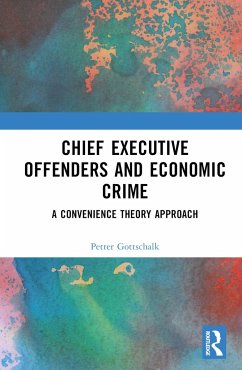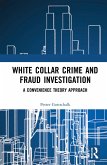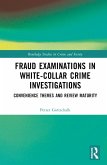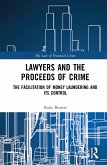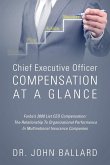This book examines the role of Chief Executives in white collar crime from a convenience theory perspective. Privileged position status, legitimate resource access, institutional deterioration, lack of control and guardianship, and criminal networks such as cartels are some of the typical factors of opportunity convenience when chief executives commit white-collar crime. By presenting and discussing such factors, this book aims to clarify vulnerabilities in organizational settings when the deviant chief executive takes advantage of their position for criminal means. The book applies convenience theory to explain a variety of cases of corporate crime committed by chief executives. The work will be a valuable resource for academics and researchers in the areas of criminology and criminal justice, law enforcement policy, business management and organizational behavior.
Bitte wählen Sie Ihr Anliegen aus.
Rechnungen
Retourenschein anfordern
Bestellstatus
Storno

